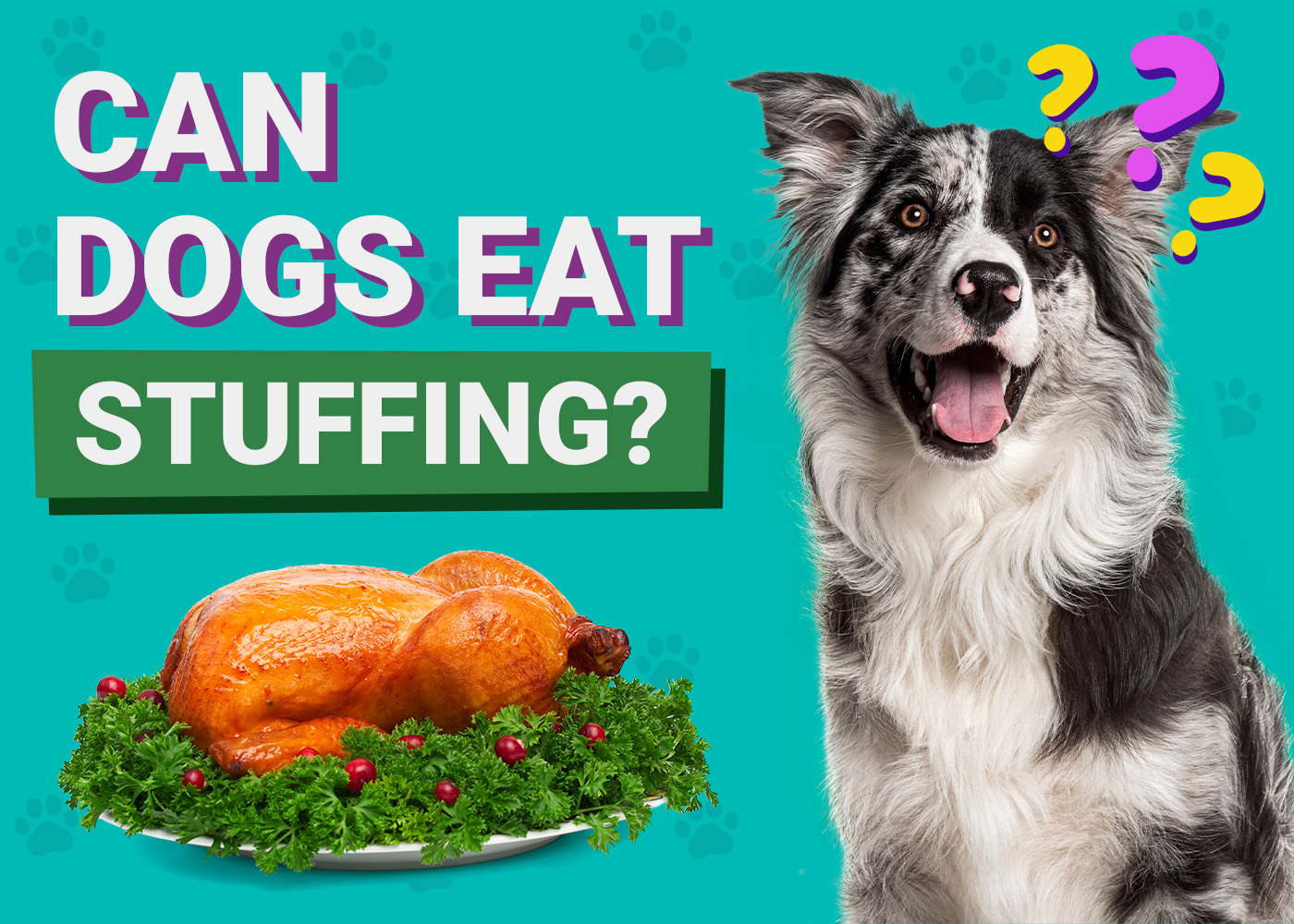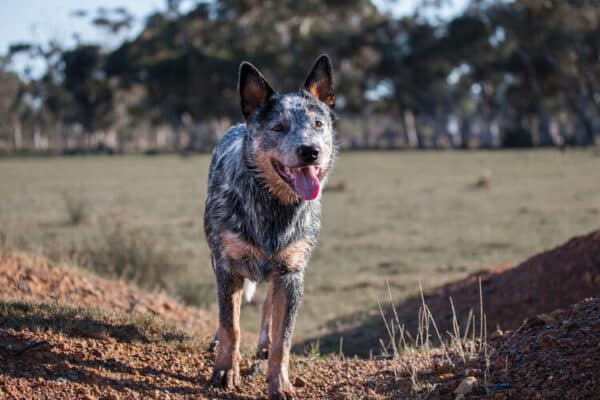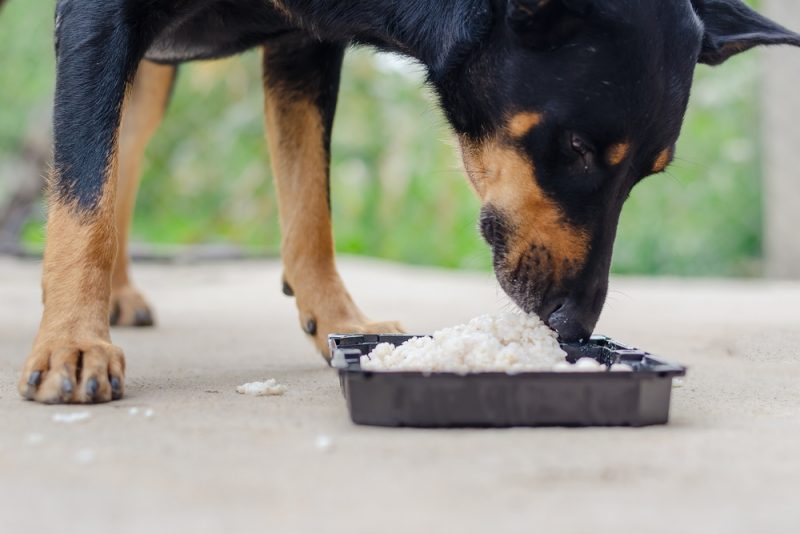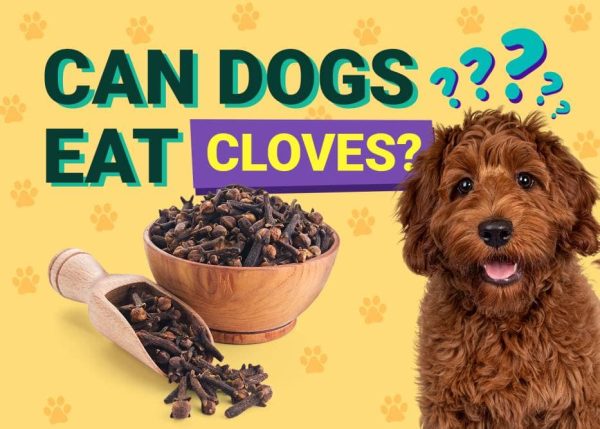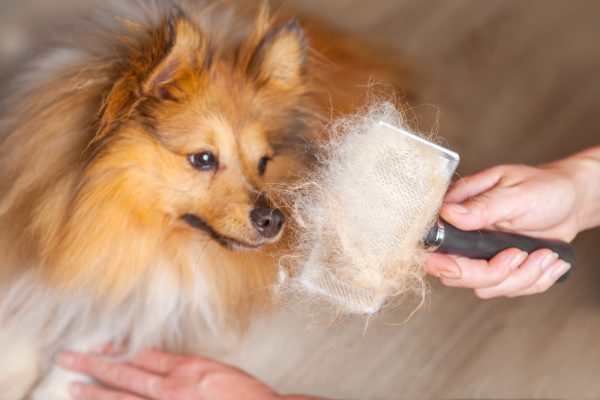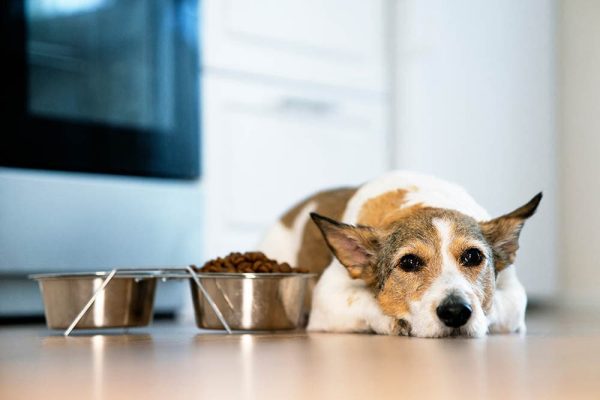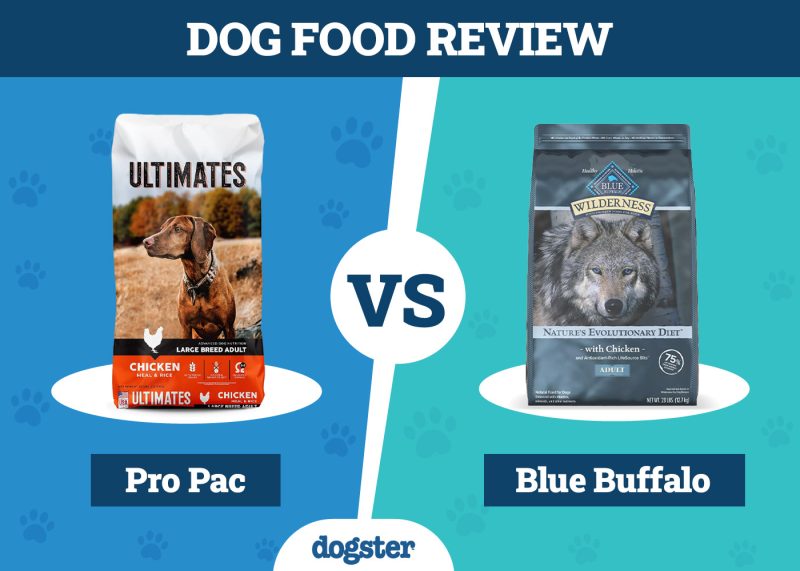In this article
View 2 More +If Christmas or Thanksgiving is just around the corner, you may be wondering if you can slip your dog the odd bit of stuffing under the table as a special treat. Unfortunately, while it may look and smell like the perfect doggy treat, stuffing is not safe for dogs. It may give them an upset tummy or worse, cause toxicity and serious conditions like pancreatitis.
In this post, we explain why it’s unwise to offer stuffing to your pup and inform you about other festive foods that can make dogs sick.

Is Stuffing Toxic to Dogs?
Yes, stuffing is toxic to dogs because it contains garlic and onions. Both of these ingredients, which come from the Allium genus, can cause toxicity in dogs, as can leeks, chives, and shallots. They contain thiosulfate, which in dogs, can cause red blood cell damage. This results in a condition called hemolytic anemia.
No part of any of these food items is safe for dogs, and it doesn’t matter if they’re raw or cooked either. They can all cause nasty effects, including vomiting, diarrhea, weakness, lethargy, dehydration, abdominal pain, pale gums, appetite loss, breathing difficulties, and panting. The affected dog’s urine may also take on a reddish tint.
The more garlic or onion the dog consumes, the more severe the effects are likely to be. Consequences range from a stomach upset to life-threatening anemia.
In addition to onion and garlic, stuffing is salt heavy and typically high in fat. Fatty foods like this have the potential to cause pancreatitis, which is an inflammation of the pancreas. Signs include vomiting, abdominal pain, lethargy, dehydration, and a lack of appetite.
My Dog Ate Stuffing, What Should I Do?
If your dog ate only a bit of stuffing, this might not be enough to cause serious side effects, but it’s still best to get on the phone with your vet, even if your dog isn’t displaying any signs. This way, you’ll have the peace of mind that a professional is aware of the situation and can advise you on what course of action, if any, is necessary to take.
If your dog is displaying signs like vomiting, diarrhea, or weakness, they need to be checked out straight away. Please contact your vet and do exactly what they tell you to do. In short, call your vet, no matter what. It’s always best to err on the side of caution with these things, especially as the signs of Allium toxicity can sometimes be delayed.
If you need to speak with a vet but can't get to one, head over to PangoVet. It's our online service where you can talk to a vet online and get the advice you need for your pet — all at an affordable price!
Which Other Festive Foods Are Bad for Dogs?
Stuffing isn’t the only festive snack your dog shouldn’t be getting their chops around. Check out this list of potentially dangerous Thanksgiving or Christmas foods for dogs.
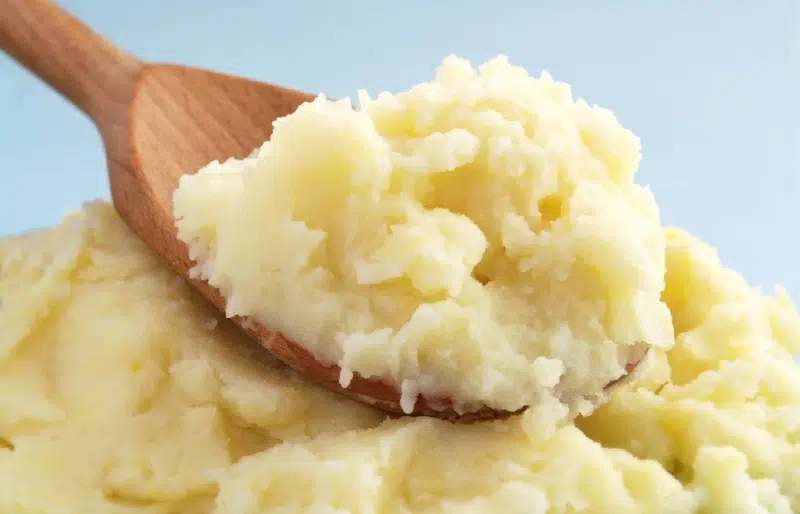
1. Mashed Potatoes
Who doesn’t love mashed potatoes? Understandably, your dog would love a bit of this creamy delight, but you should avoid giving it to them. Mashed potatoes are full of butter, which could upset your dog’s stomach or even cause pancreatitis, as is the case with other fatty foods.
2. Gravy
Gravy is sodium heavy and usually fatty. As we know, this is hard on a dog’s stomach, and it may lead to an inflamed pancreas.
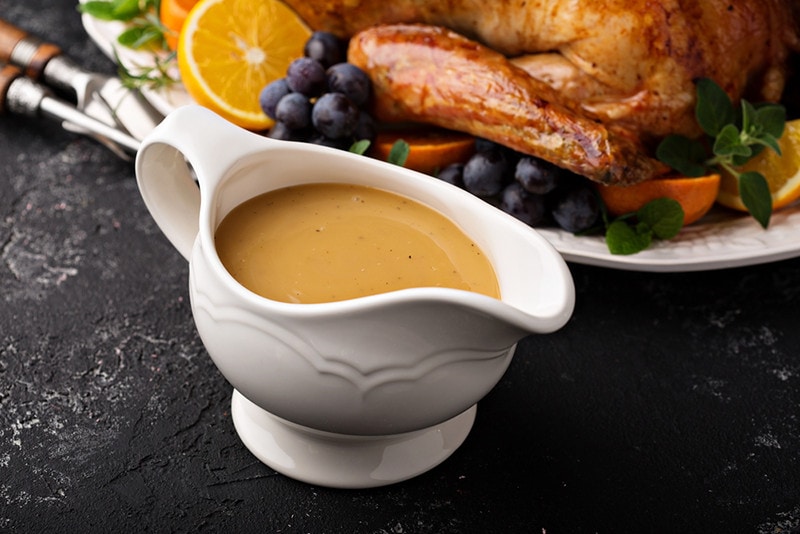
3. Bones
Are you thinking about tossing that turkey bone to your dog? You shouldn’t: Cooked bones can splinter and injure your dog or get stuck in their digestive tract.
4. Fat & Meat Skin
These are incredibly unhealthy for your dog, especially since they’re likely slathered in some kind of seasoning. In any case, they are just too fatty for dogs, seasoning or no seasoning, and should be avoided.
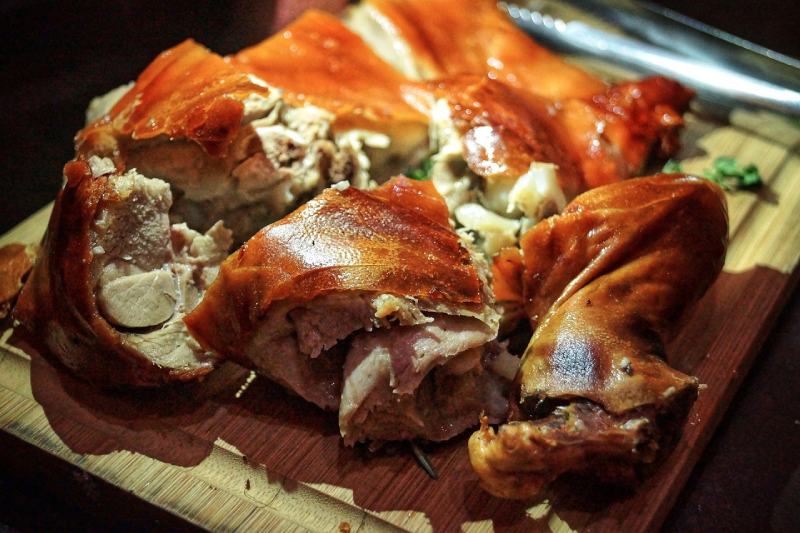
5. Foods or Seasonings Containing Garlic
Whatever’s on the table, if it contains garlic, onions, chives, leeks, or shallots, it’s not safe for your dog. These could be meat dishes, casseroles, seasoned vegetables—pretty much anything cooked with a member of the Allium genus and/or butter, cream, and/or salt.
6. Fruitcake
Fruitcake is typically made with raisins, which are toxic to dogs. In addition to stomach upset, raisins can cause kidney failure, as can grapes, currants, and sultanas.
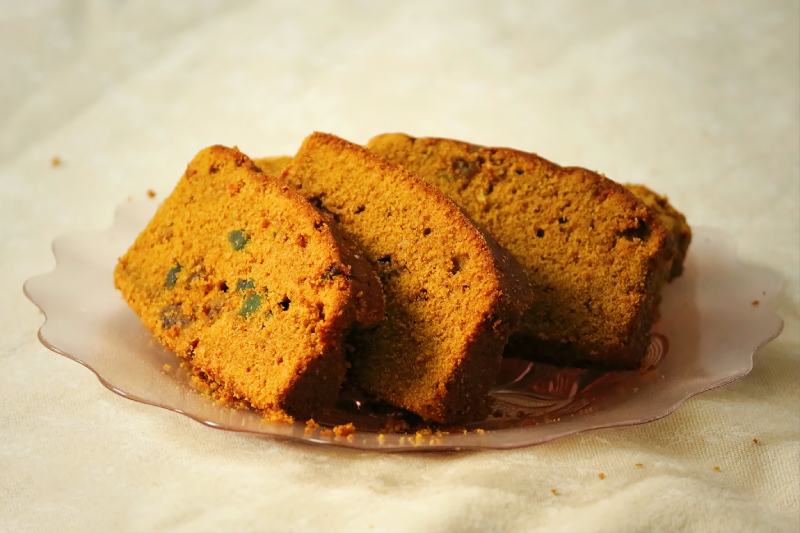
7. Chocolate & Desserts
Chocolate is another food item that’s toxic to dogs. Furthermore, almost any kind of dessert that isn’t a piece of plain, dog-safe fruit (like banana or blueberries) is going to be too sugary for your dog.

Final Thoughts
We totally get the temptation to share your favorite festive snacks, such as stuffing, with your canine companion (especially when they’re giving you “the eyes”), but with toxicity, anemia, pancreatitis, and kidney failure among the potential consequences of certain foods for dogs, we’re sure that any sensible dog parent would agree that it’s simply not worth the risk.
See Also:
Featured Image Credit: New Africa, Shutterstock
